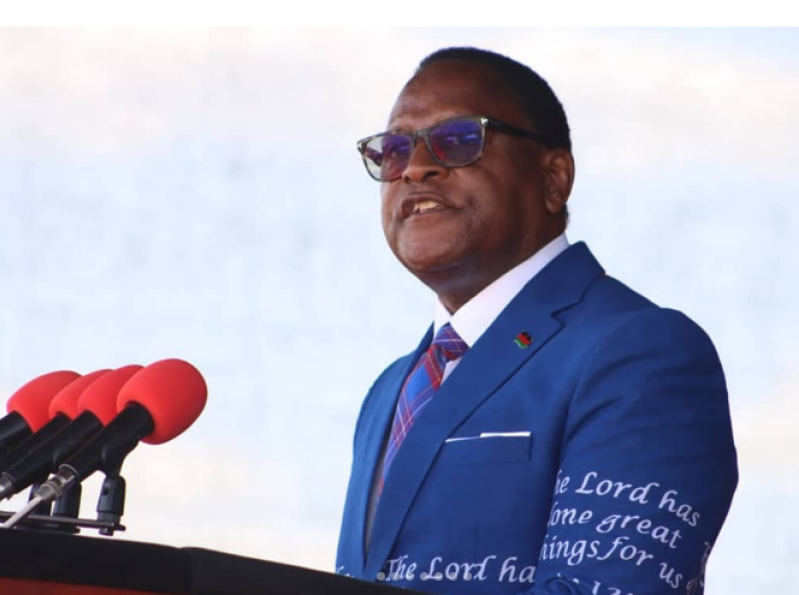Malawi’s Election Commission declared on Wednesday that former President Peter Mutarika was the winner of the presidential election.
According to the final results, Mutarika, 85, who previously led Malawi from 2014 to 2020, returned to power after securing 57% of the votes against Chakwera’s 33%. Chakwera, 70, was recognized even before the official announcement, and acknowledged that partial tally already showed Mutarika had built a “insurmountable lead.” His concessions make him one of the few African incumbents in recent memory, peacefully handing over his strength after a term.
“From these official results,” Chakwera said in a speech aired, “It was clear that my main rival, his Excellency Peter Mutarika, of the Democrat Progressive Party, had already secured an insurmountable lead and was the presumed winner of the presidential election.”
President Chakwera, 70, continued to tell the country that he had called Mutarika to congratulate him. He explained that he accepted the defeat because he accepted the provisional partial results announced by the Election Commission.
“For many who support my campaign for reelection, this outcome is disappointing…but it is right to admit defeat from respecting your collective will and respect for the Constitution as a citizen,” he said.
The final result showed that Mutarika won 57% of the vote, compared to President Chakwera, who won 33%.

Chakwera defeated Mutarika in a rerun election held in June 2020, and has voided Mutarika’s reelection, including the use of correction fluids in the tally sheet.
Chakwera’s pledge to fight corruption, lock in the economy, create jobs and restore citizen dignity was reinforced by his image as an evangelical Christian leader who worked as a gathering of God’s pastors until his transition into politics in 2013. He expanded his ministry so that he could “pastor the whole country.”
But five years later, voters harshly judged Chakwera on his record. The 2025 election was dominated by the dire economic conditions.
Since 2020, Malawi has experienced a long-term economic crisis, with average GDP growth falling to 2.2% (below 2.6% population growth), resulting in a decline in the average Malawi people’s income.
According to a World Bank report, inflation has skyrocketed to around 30%, with high commodity prices, rising unemployment and fuel shortages becoming everyday features of everyday life. The cost of staple foods, including corn and fertilizer, has increased dramatically. Fertilizer prices alone have risen six times, threatening food security for millions.
In an idyllic letter to the congregation before the election, the Malawi church had urged its citizens to select leaders who “responsibly to fulfill their campaign promises and address the pressing economic challenges facing the nation.”
The government partially attributed these challenges to external shocks such as the Russian-Ukraine War and climate disasters such as the Cyclone Freddie and severe drought, but many citizens condemned policy failures. Critics pointed to important policy shortages, including overrated official exchange rates, unsustainable borrowing practices, and restrictive trade policies that exacerbated the country’s fragility. The fiscal deficit was the highest in Africa, funded primarily through costly domestic borrowings.
Moreover, corruption remained an important area of voter disappointment. Despite Chakwera’s pledge to anti-transplant measures, critics argued that enforcement was selective and that the famous scandal was eroding the confidence of the people. The inability to realize the promises of major campaigns, such as creating jobs for one million people, has fostered widespread disillusionment, especially among young people who once formed a strong support base.
Some analysts suggested that the gap between Chakwera’s pastoral image and harsh economic realities erod public trust. There have also been criticisms that leadership styles rooted in the structure of charismatic, top-down churches may not have been translated into democratic governance, and are reluctant to embrace accountability or provide practical policy solutions.
Despite these extensive failures, Chakwera’s tenure saw some notable human development outcomes. Malawi recorded a dramatic decline in mortality rates for those under the age of five, down from 48 deaths per 1,000 in 2024. Chakwera’s government also highlighted initiatives such as infrastructure projects, digital reforms and newborn savings accounts as evidence of their long-term vision.
Ultimately, the anti-paying wave across Africa driven by economic dissatisfaction and fatigue of corruption proved insurmountable for Chakwera. Voters faced the choice of “a disappointing incumbent” and his 85-year-old predecessor, Peter Mutarika.
